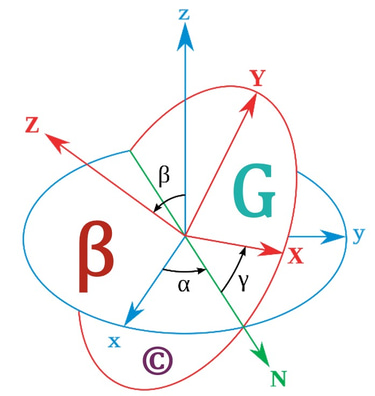The Importance of Grounding and Bonding in Electrical Systems
When it comes to electrical systems, safety and reliability are paramount. Two critical components that ensure the safe operation of electrical systems are grounding and bonding. While these terms are often used interchangeably, they serve distinct but complementary purposes. In this blog, we’ll explore the importance of grounding and bonding, how they work, and why they are essential for the safety and functionality of your electrical system.
ELECTRICAL ENGINEERINGPROJECT MANAGEMENTPROPERTY AND BUILDINGS
Engr. Benjamin V. Gonzales Jr.
2/25/20253 min read
What is Grounding?
Grounding refers to the process of connecting an electrical system to the earth or a conductive body that serves as a reference point for zero voltage. This connection provides a safe path for electrical current to flow in the event of a fault, such as a short circuit or lightning strike. Grounding helps to:
Stabilize voltage levels.
Protect against electrical shocks.
Prevent damage to electrical equipment.
How Grounding Works:
In a grounded system, a grounding wire is connected to the electrical panel and then to a grounding rod buried in the earth. This creates a low-resistance path for excess current to dissipate safely into the ground.
What is Bonding?
Bonding, on the other hand, involves connecting all metal components of an electrical system to ensure they are at the same electrical potential. This prevents dangerous voltage differences that could lead to electrical shocks or sparks. Bonding is essential for:
Ensuring electrical continuity.
Reducing the risk of fire caused by arcing.
Protecting against static electricity buildup.
How Bonding Works:
Bonding is achieved by connecting metal parts, such as pipes, enclosures, and equipment, using bonding jumpers or wires. This creates a unified electrical system where all components share the same voltage level.
Why Grounding and Bonding Are Important
1. Protection Against Electrical Shocks
One of the primary reasons for grounding and bonding is to protect people from electrical shocks. If a fault occurs, such as a live wire touching a metal casing, grounding provides a path for the current to flow safely into the earth. Bonding ensures that all metal parts are at the same voltage, eliminating the risk of shock from touching two different components.
2. Prevention of Electrical Fires
Grounding and bonding help prevent electrical fires by reducing the risk of arcing and overheating. Without proper grounding, excess current can flow through unintended paths, causing wires to overheat and potentially ignite surrounding materials. Bonding eliminates voltage differences that could cause sparks, further reducing fire hazards.
3. Equipment Protection
Electrical equipment is vulnerable to damage from power surges, lightning strikes, and other electrical faults. Grounding provides a safe path for excess current, protecting sensitive devices from damage. Bonding ensures that all equipment operates at the same voltage level, preventing malfunctions caused by voltage differences.
4. Compliance with Electrical Codes
Grounding and bonding are required by electrical codes and standards, such as the National Electrical Code (NEC). Compliance ensures that your electrical system is safe, reliable, and up to code. Failure to properly ground and bond your system can result in fines, failed inspections, and increased liability.
5. Improved System Performance
A properly grounded and bonded electrical system operates more efficiently and reliably. Grounding stabilizes voltage levels, reducing fluctuations that can affect the performance of electrical devices. Bonding minimizes electromagnetic interference (EMI) and ensures consistent operation of connected equipment.
Common Grounding and Bonding Issues
1. Improper Grounding
Improper grounding occurs when the grounding system is not installed correctly or is damaged. Signs of improper grounding include:
Frequent electrical shocks.
Flickering lights or unstable voltage.
Damaged appliances or electronics.
How to Fix It:
Hire a licensed electrician to inspect and repair the grounding system.
Ensure the grounding rod is properly installed and has low resistance.
Replace damaged or corroded grounding wires.
2. Lack of Bonding
A lack of bonding can create dangerous voltage differences between metal components. Signs of inadequate bonding include:
Sparks or arcing between metal parts.
Static electricity buildup.
Corrosion or rust on metal components.
How to Fix It:
Connect all metal components using bonding jumpers or wires.
Ensure bonding connections are tight and free of corrosion.
Regularly inspect and maintain bonding systems.
3. Ground Loops
Ground loops occur when there are multiple grounding paths with different voltage levels. This can cause interference, noise, and equipment malfunctions.
How to Fix It:
Ensure all grounding paths are connected to a single point.
Use isolation transformers or ground loop isolators to eliminate interference.
Consult an electrician to design a proper grounding system.
How to Ensure Proper Grounding and Bonding
Hire a Licensed Electrician
Grounding and bonding are complex tasks that require expertise. Always hire a licensed electrician to design, install, and inspect your grounding and bonding systems.
Follow Electrical Codes
Adhere to local electrical codes and standards, such as the NEC, to ensure your system is safe and compliant.
Use Quality Materials
Invest in high-quality grounding rods, wires, and bonding jumpers to ensure durability and reliability.
Regular Inspections
Schedule regular inspections to identify and address any issues with your grounding and bonding systems.
Conclusion
Grounding and bonding are fundamental to the safety and functionality of electrical systems. They protect against electrical shocks, prevent fires, safeguard equipment, and ensure compliance with electrical codes. Whether you’re building a new home, upgrading an existing system, or troubleshooting electrical issues, proper grounding and bonding should always be a priority.
If you’re unsure about the condition of your grounding and bonding systems, don’t hesitate to contact a licensed electrician. They can assess your system, make necessary repairs, and provide peace of mind that your electrical system is safe and reliable.





